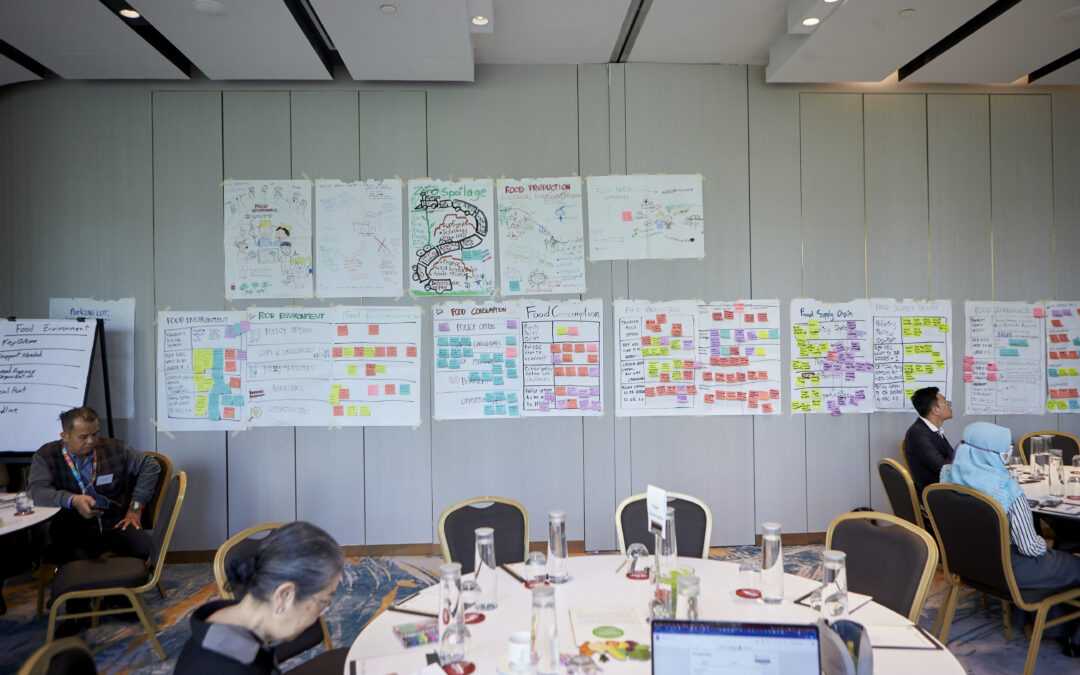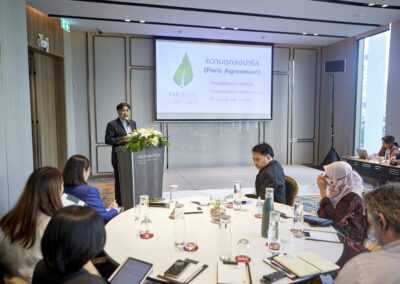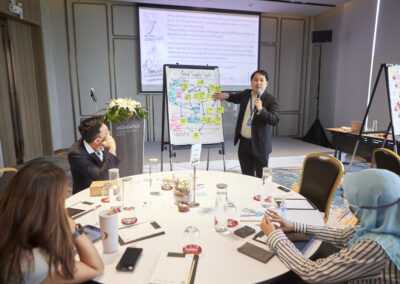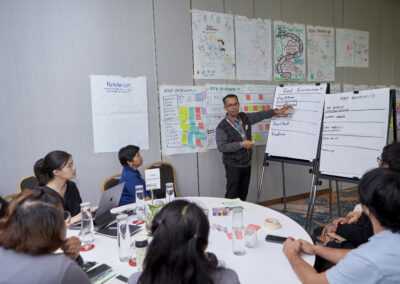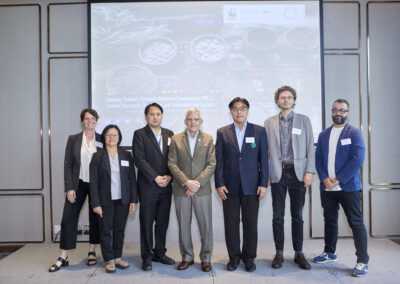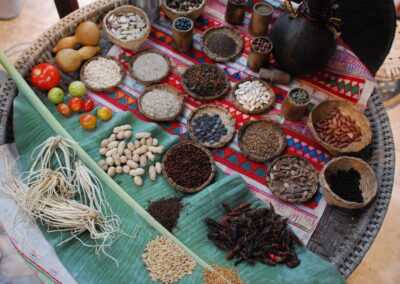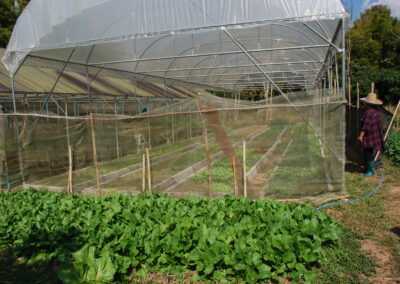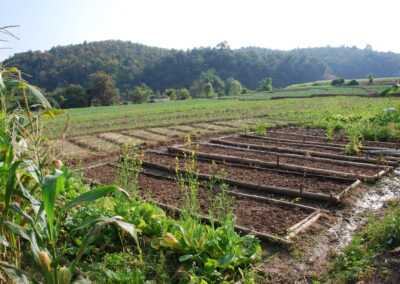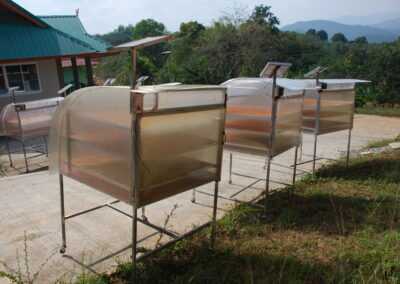Interconnected crises demand integrated solutions
Climate change, hunger, malnutrition, biodiversity loss, and inequalities, are interconnected crises that demand urgent and integrated solutions. As global temperatures rise and ecosystems degrade, ample evidence has shown that the way we produce, consume, and distribute food is both a significant driver of these challenges and a critical lever for addressing them – all while food systems are highly vulnerable to the impacts of climate change. For instance, the biodiversity loss crisis caused by the massive conversion of natural ecosystems into industrial agricultural land, reduces resilience to climate change, and undermines the ecosystem services that food production relies on, such as pollination, water retention and soil health.
To reverse these trends, policymakers must adopt a systems approach. Taking such a holistic lens will allow them to more effectively consider all the complex interconnected issues simultaneously – which in turn will enable the development of more coherent policy plans. Policymakers and stakeholders play a pivotal role in shaping national and global responses, but the policy-making process is often affected by political economy challenges.
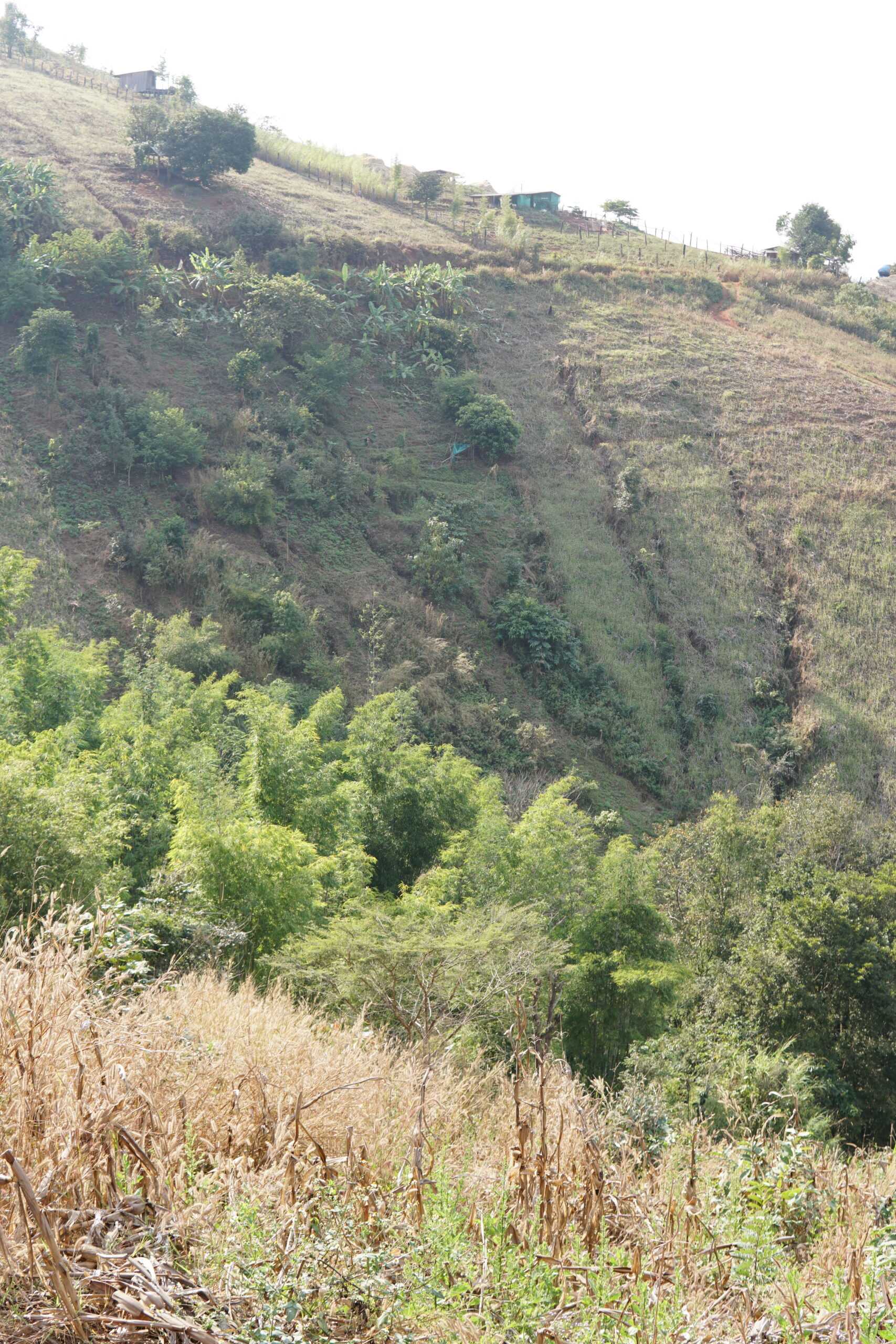
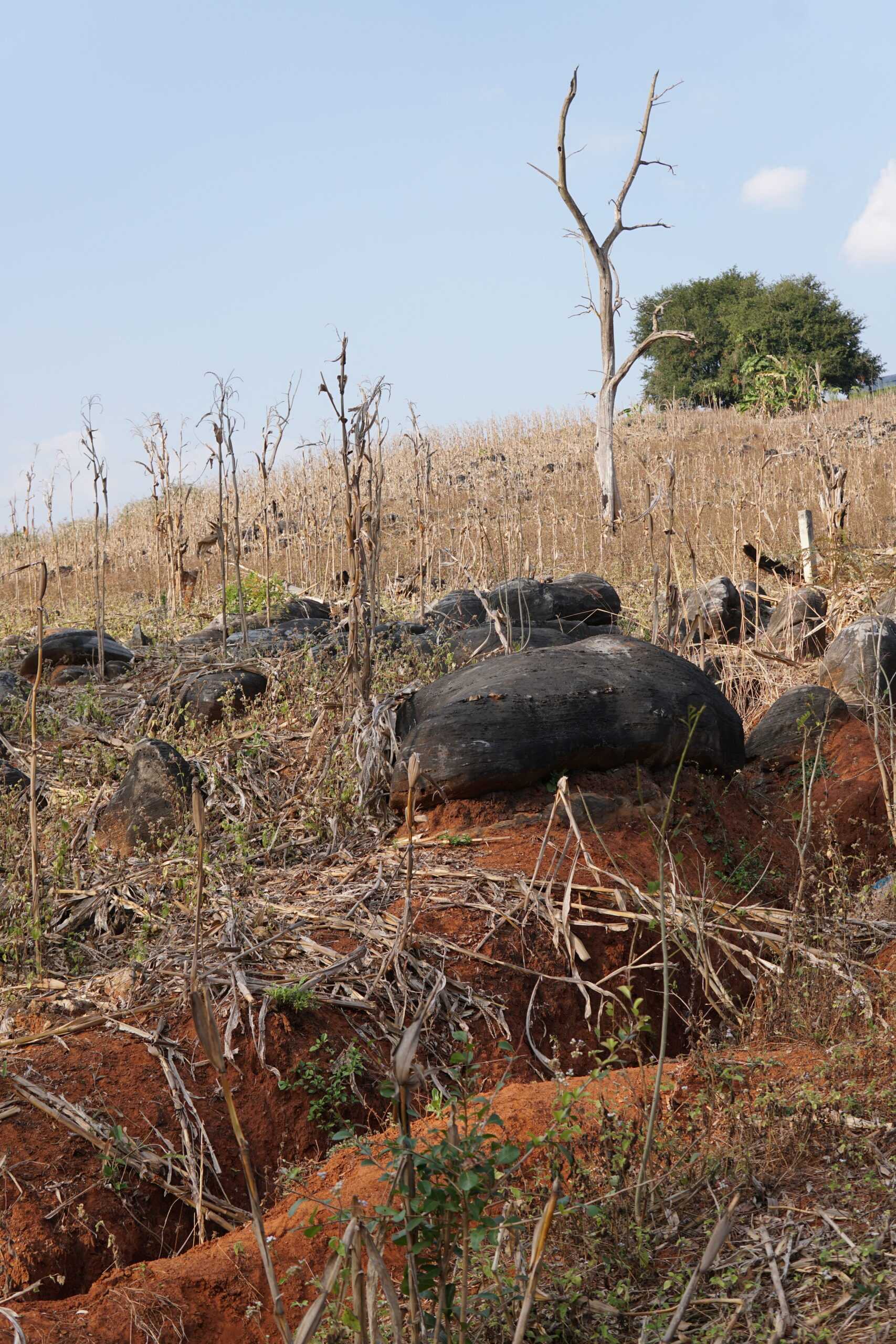
Updating the Nationally Determined Contributions (NDCs)
In 2025, countries are expected to submit updated NDCs under the Paris Agreement, which represents a critical opportunity for the urgently needed scale up of climate action – which must specifically address food systems challenges. Further, this NDC enhancement process is also essential to address threats to peace, security, stability and prosperity that are posed by these interconnected issues. By integrating food systems into NDCs, countries can unlock significant mitigation potential while also building resilience and achieving sustainable development goals.
Both Cambodia and Thailand have recognized the importance of addressing climate change, but the integration of food systems into their NDCs remains a work in progress. Policymakers in both countries have the power to drive transformative change, but they need the right tools and knowledge to do so.
WWF’s Role: Convening, Facilitating Dialogue and Building Capacity
WWF worked to support policymakers and stakeholders in Cambodia and Thailand through a series of dialogues and training workshops.
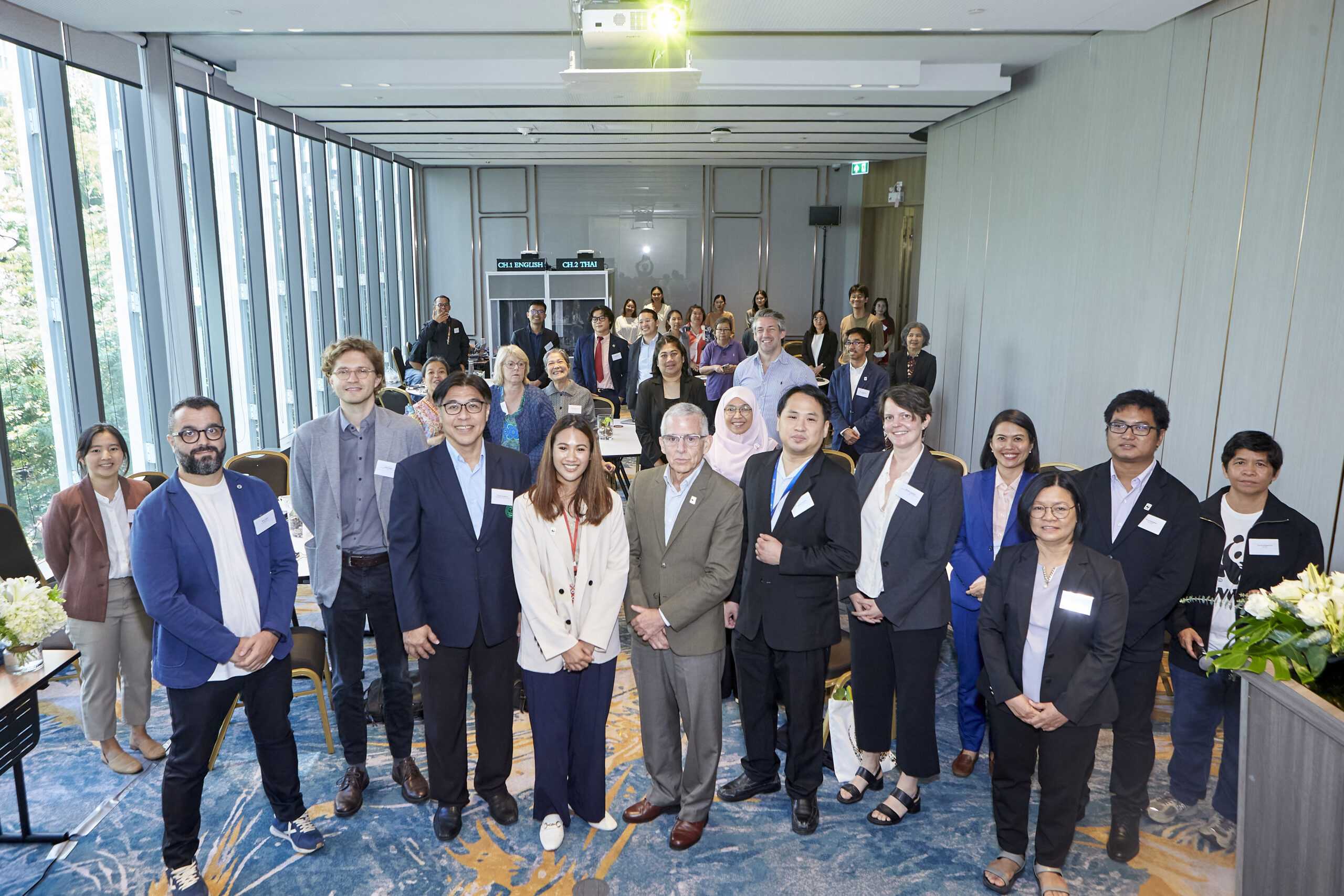
In Thailand, on 4-5 March, WWF-Thailand’s Future Food Together team convened a one-and-a-half-day workshop dialogue with Thai government technical level officials, decision-makers as well as a range of food systems and climate actors. Using the Food Forward NDCs Guidance Tool, the workshop aimed to:
-
- Raise knowledge on the linkages between food systems, climate change, and biodiversity.
- Identify key actions that can reduce emissions, enhance resilience, and protect ecosystems.
- Build capacity for developing and implementing food systems actions in NDCs.
- Foster collaboration among government agencies, civil society, and the private sector.
Strategically, the “NDC Tool” workshop was organized back-to-back with two key regional meetings for action on the climate-food systems nexus:
-
- On 2-5 March, the UN Food Systems Coordination Hub and The Convergence Initiative organized a UN Food Systems Summit National Convenors Asia-Pacific preparatory meeting for the Stock Taking Moment+4 that will be taking place in July in Ethiopia.
- On 5-6 March, WWF helped organize a FAO-led regional workshop titled “Advancing Climate Ambition in the Agrifood Sector: Workshop on NDC 3.0 and COP30 Preparation in Asia-Pacific”.
WWF-Cambodia FFT staff joined the FAO-led regional workshop in Bangkok, in anticipation of the NDC Tool workshop that they co-organized in Cambodia on 23 April 2025 with FAO and GIZ, organizations that have been designated by the Ministry of Environment of Cambodia as leads for the NDC enhancement process for the agricultural sector. As in the Thai NDC Tool workshop, Cambodian key actors and government decision-makers participated to identify a set of context-relevant key agri-food systems actions that can contribute to climate mitigation and adaptation, to build their capacity, and to foster collaboration – equipping them for the enhancement of their NDCs, and for implementation.
Outcomes of the Thailand NDC Workshop
- Policymakers and other relevant stakeholders in Thailand have gained a deeper understanding of the linkages between food systems and climate change, on the status of Thailand’s current NDC, and on the need to include relevant food systems actions into the NDC 3.0.
- Started important dialogue among relevant stakeholders on the importance of food systems for climate action. Collaborative networks have been established to ensure ongoing dialogue.
- Stakeholders have identified priority actions for inclusion in NDC 3.0 (summary list of actions below).
- Basic action plans developed for further brainstorming and discussion of actions to include in NDC 3.0 across each of the NDC Tool’s intervention areas.
List of proposed agri-food systems climate actions out of Thailand’s Food Forward NDC Workshop
The Thailand Food Forward NDC workshop gathered comprehensive policy recommendations across all dimensions of the food system: Food Environment, Governance, Production, Supply Chain, and Consumption.
- Promoting Agroecology:
- Establish a core national agroecology working group within 3 years.
- Promote the “One Subdistrict, One Agroecology Community” initiative, supported by adequate budget allocation, seed distribution, and enabling policy frameworks.
- Reduce chemical usage in agriculture by 70% by 2050, with clearly defined Key Performance Indicators (KPIs).
- Policy Coordination:
- Form an inter-ministerial committee to coordinate relevant policies and complete the drafting of Thailand’s NDC 4.0 by 2035.
- Establish a dedicated national coordinating body for Food NDCs.
- Sustainable Food Supply Chains:
- Reduce food loss and spoilage in the logistics system to 3–5% by 2027, and aim for near-zero spoilage by 2070, supported by technology and infrastructure.
- Establish an innovation hub for post-harvest technology solutions.
- Supporting Small-Scale Producers and Small-Scale Fisheries:
- Develop a GEDSI (Gender, Equity, Diversity, and Social Inclusion) database for small-scale fishers.
- Create evidence-based policies and integrate Other Effective Area-based Conservation Measures (OECMs), such as mangrove protection, into climate action frameworks.
- Circular Food Systems:
- Promote food waste management in households, restaurants, and retail sectors, including composting and encouraging local sourcing of food.
- Enhance public awareness through national food waste reduction campaigns.
- Policy Development and Follow-Up Actions:
- Conduct legal and regulatory gap analyses, particularly in relation to chemical usage and food safety laws.
- Implement pilot projects based on workshop recommendations, such as the “One Subdistrict, One Agroecology Community” model.
- Strengthen farmer-business partnerships and develop data infrastructure to support evidence-informed policymaking.
- International Collaboration:
- Seek financial and technical support from international agencies such as the World Bank (WB), Asian Development Bank (ADB), Agence Française de Développement (AFD), and others.
- Encourage more inclusive and diverse multi-stakeholder dialogues across sectors.
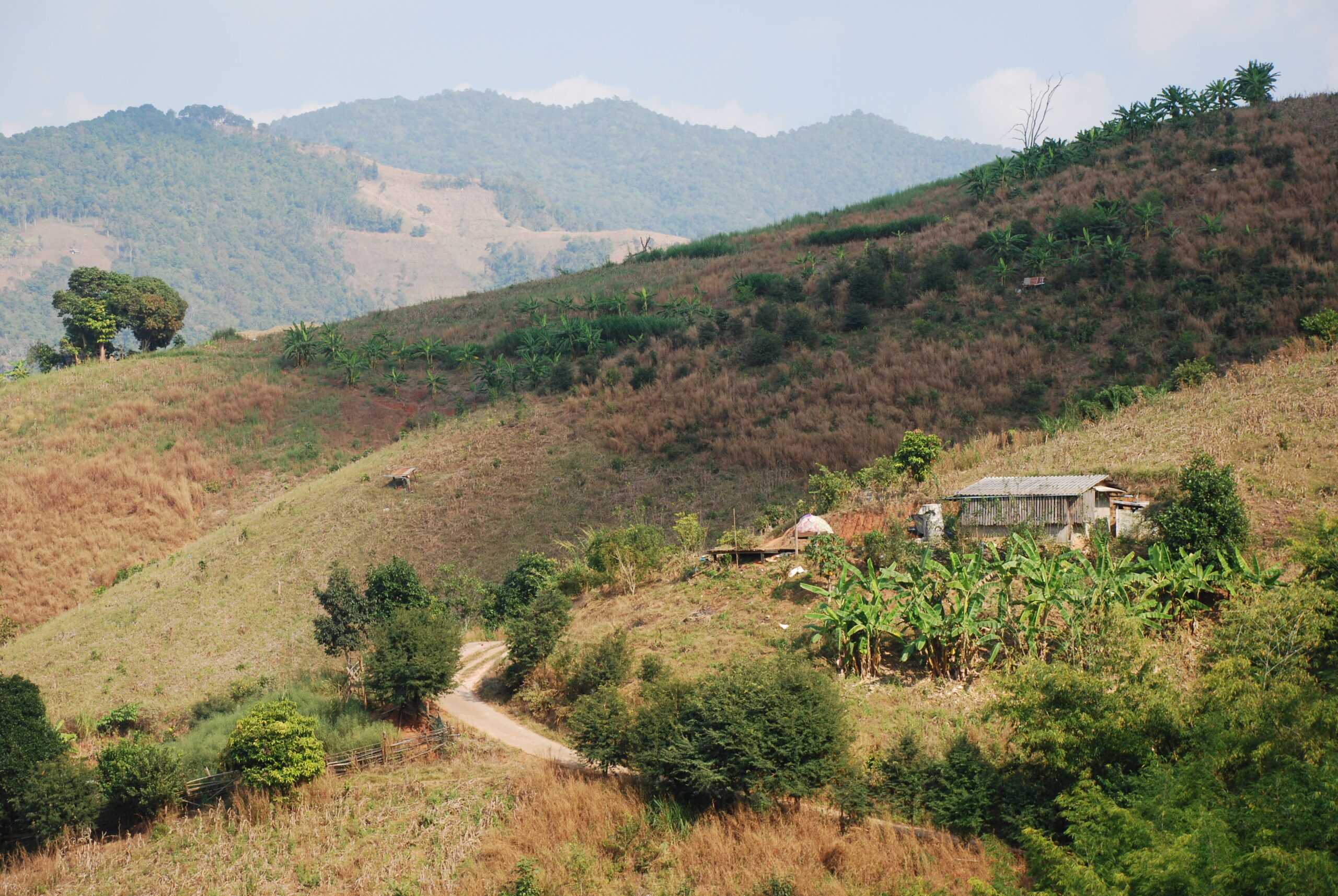
Next steps
As a key next step, these recommendations will be compiled into a bilingual summary report to be shared with workshop participants and relevant stakeholders, serving as a foundation for continued collaboration and policy dialogue.
Given the limited project timeframe, efforts will focus on actions that can be realistically advanced within the remaining period. These actions are open to collaboration and not limited to any single organization.
Importantly, with the right coordination—such as the formation of a multi-sectoral committee—these recommendations could be integrated into Thailand’s NDC 4.0 (in 2030), ensuring food and agriculture are recognized as key components of climate action.
WWF Thailand and its partners, along with broader stakeholders, committed to continue facilitating dialogue and cross-sector collaboration to develop ambitious, science-based policy targets, action plans and implementation support.

